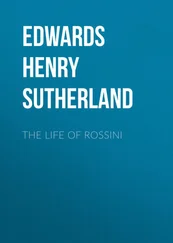Henry Bourne - The Life of Thomas, Lord Cochrane, Tenth Earl of Dundonald, Vol. II
Здесь есть возможность читать онлайн «Henry Bourne - The Life of Thomas, Lord Cochrane, Tenth Earl of Dundonald, Vol. II» — ознакомительный отрывок электронной книги совершенно бесплатно, а после прочтения отрывка купить полную версию. В некоторых случаях можно слушать аудио, скачать через торрент в формате fb2 и присутствует краткое содержание. Жанр: foreign_antique, foreign_prose, Биографии и Мемуары, на английском языке. Описание произведения, (предисловие) а так же отзывы посетителей доступны на портале библиотеки ЛибКат.
- Название:The Life of Thomas, Lord Cochrane, Tenth Earl of Dundonald, Vol. II
- Автор:
- Жанр:
- Год:неизвестен
- ISBN:нет данных
- Рейтинг книги:3 / 5. Голосов: 1
-
Избранное:Добавить в избранное
- Отзывы:
-
Ваша оценка:
- 60
- 1
- 2
- 3
- 4
- 5
The Life of Thomas, Lord Cochrane, Tenth Earl of Dundonald, Vol. II: краткое содержание, описание и аннотация
Предлагаем к чтению аннотацию, описание, краткое содержание или предисловие (зависит от того, что написал сам автор книги «The Life of Thomas, Lord Cochrane, Tenth Earl of Dundonald, Vol. II»). Если вы не нашли необходимую информацию о книге — напишите в комментариях, мы постараемся отыскать её.
The Life of Thomas, Lord Cochrane, Tenth Earl of Dundonald, Vol. II — читать онлайн ознакомительный отрывок
Ниже представлен текст книги, разбитый по страницам. Система сохранения места последней прочитанной страницы, позволяет с удобством читать онлайн бесплатно книгу «The Life of Thomas, Lord Cochrane, Tenth Earl of Dundonald, Vol. II», без необходимости каждый раз заново искать на чём Вы остановились. Поставьте закладку, и сможете в любой момент перейти на страницу, на которой закончили чтение.
Интервал:
Закладка:
Castle Tornese, there situated, was being besieged by the Turks, and Lord Cochrane hoped to be in time to avert its capture. In this he failed. Arriving on the 22nd of May, he found that the castle had capitulated a few hours before. All he could do was to chase two Turkish frigates which he found on the coast. "We fired into them," he said, "but our guns were ill-directed, and the noise and confusion on board this ship was excessive, which prevented my choosing to attack them again, though they did us not the slightest injury, because I am desirous that the Hellas shall be in somewhat better order before I voluntarily attack an enemy who may take advantage of the impossibility of causing my orders to be obeyed, and so leave the fate of the ship to the conduct of a rabble."
One capture, however, the Hellas was able to make on the following day. She fell in with a vessel, manned by Turks and Ionian Islanders, bearing the British flag, loaded with captives, chiefly women and children, just taken in the Castle Tornese. Lord Cochrane seized her, and sent her, with a reasonably indignant letter, to the Lord High Commissioner at Corfu. "If I do not attempt to express my feelings in addressing you," he said, "it is because I am aware that the terms I should employ would fall far short of the sensations that will arise in the breast of every honourable man throughout the civilized world, and the degradation which every Englishman will experience, on learning that the flag of England, first prostituted by supplying the traffickers in Christian slaves with all the necessaries for their horrid purposes, is now further debased by a traffic in the slaves themselves. I send you an Ionian vessel, full of women violated in their persons, and who, with their children, had been reduced to slavery, in order that the British public and the world may ascertain whether these unfortunate people will be protected by the decision of an Ionian tribunal. If there were any hope that the people in the Ionian Islands would abandon their infamous dealings otherwise than by force, I should ask your excellency to issue an order upon the subject. I beg, however, to signify that I am ready to co-operate with the admiral and officers of the British naval service in the Mediterranean in enforcing obedience to the laws of justice and humanity, and putting down the Ionian trade in slaves, as well as the piracies which have originated chiefly in the total contempt shown by the Ionian people and others for the laws of nations and the principles of justice during the contest between Greeks and Turks. I also put at your disposal the Turks found on board the Ionian boat, not considering them as prisoners of war, but as men apprehended in violating the laws of civilized nations and insulting the feelings of Christendom." "Since writing the above," it was added in a postscript, "I have experienced considerable difficulty in restraining the fury of the Greeks from bursting forth upon the violators of their countrywomen. From what I foresee, I also feel it my duty to warn you that, should the transportation of Christian captives by neutrals be continued, I cannot answer for the safety of Ionians found so employed by the other vessels of the Greek squadron."
A formal acknowledgment of that letter was all the answer received by Lord Cochrane.
On the 24th of May, when near Missolonghi, he made another capture – a Turkish brig, with eight guns, bearing Austrian colours, which was proceeding from Previsa to Navarino. In her, besides a good store of flour and gunpowder, were found some Turkish officials and several members of Reshid Pasha's harem. The alarm of these prisoners was very great at first; but they were treated with courtesy, and landed, with all their personal properties, at the first convenient halting-place, the brig and its cargo being retained as prizes. Reshid Pasha, in return for the generous treatment shown to his attendants, afterwards released a hundred Greek prisoners without ransom.
Another curious incident occurred at this time. Several small Turkish merchant-vessels passed Lord Cochrane's ship during his stay near Missolonghi, but he abstained from capturing them, deeming it unworthy to interfere with such small crafts, devoted, as it was supposed, only to trading purposes. He was afterwards informed that in one of them Ibrahim Pasha himself had been concealed. Had the Egyptian leader been thus made prisoner, the future course of the war might have been altogether changed.
Lord Cochrane had gone into the Gulf of Patras in hope of meeting with Captain Hastings, from whom he had parted soon after leaving Spetzas; but the Karteria had been disabled by a squall, which took away both her masts, and so had to return to Poros; and with the ill-manned Hellas alone Lord Cochrane did not deem it prudent, as he had wished, to attack Navarino, whither the besiegers of the Castle Tornese had gone, and where twelve Egyptian frigates, twenty corvettes, and forty or fifty smaller vessels were for some time lying. Several of these came out to take on board the Ottoman troops who had done their work at Cape Clarenza, and Lord Cochrane, on the 1st of June, remained for several hours within sight of them, ready and hoping to be attacked. No fight being offered, however, he did not choose to run the risk of going single-handed into their midst. He accordingly contented himself with surveying the coast, and forming his own judgment as to the relative value of its ports and harbours, as he sailed back in the direction of Poros.
To Poros itself Lord Cochrane did not venture to proceed. "I have written for all the Greek vessels that are ready, including the fireships and explosion-vessels, to join me," he said in a letter to Dr. Gosse, written on the 7th of June, off Cerigo; "I remain at sea with this frigate, lest the whole of her crew should desert, according to custom, were I to pay a visit to Poros." The want of zeal which he thus perceived in his seamen was shared by nearly all their countrymen. All wished him to serve them, but very few made any patriotic effort to aid him in the service. His most active supporter was Captain Abney Hastings; and Captain Abney Hastings complained yet more loudly than did his superior of the indolence and bad conduct of the Greeks. "I had the honour to receive your order of the 7th, enjoining me to repair to your lordship without delay, if ready for sea," he wrote on the 9th, from Spetzas; "a variety of circumstances, unavoidable in a country deprived of even the shadow of organization, has prevented me from being yet ready to sail. The majority and best of my crew have left me, and I must look for others."
Hastings and all his other officers wrote over and over again to Lord Cochrane, asking for stores of all sorts, and for money with which to pay the wages of their crews. But Lord Cochrane was still almost without funds. Only from Konduriottes, and the other island primates, could he procure scanty supplies with which to carry on his work – or rather, to prevent that work from being altogether abandoned. "I have the honour," he wrote to the Government, "to represent to your excellencies that I find it impossible to realise the credit which you assigned to me on the revenues of the islands, and that insurmountable obstacles prevent my acting as affairs require. The Hellas even is idle for want of supplies. Each day, each event, increases my conviction that, without strong and special efforts, without a prompt and disinterested co-operation of all its citizens, Greece must of necessity be overcome. Isolated as I am, I am useless to them. Supported by their patriotism and zeal, I could fight for their independence. The islands of the Archipelago are willing to aid our efforts, but they claim from me in return a guarantee for the safety of their goods and for the regular administration of their imposts. I await your excellencies' instructions for promptly answering their demand; for the resources of the western nations are drained; European charity is wearied. The islands alone offer us the means of maintaining the naval forces, and of resisting, if it be possible – if it be not too late – the vigorous preparations of our enemy. We must act promptly or abandon everything." The Government only answered by urging its chief admiral to lose no time in securing the independence of Greece.
Читать дальшеИнтервал:
Закладка:
Похожие книги на «The Life of Thomas, Lord Cochrane, Tenth Earl of Dundonald, Vol. II»
Представляем Вашему вниманию похожие книги на «The Life of Thomas, Lord Cochrane, Tenth Earl of Dundonald, Vol. II» списком для выбора. Мы отобрали схожую по названию и смыслу литературу в надежде предоставить читателям больше вариантов отыскать новые, интересные, ещё непрочитанные произведения.
Обсуждение, отзывы о книге «The Life of Thomas, Lord Cochrane, Tenth Earl of Dundonald, Vol. II» и просто собственные мнения читателей. Оставьте ваши комментарии, напишите, что Вы думаете о произведении, его смысле или главных героях. Укажите что конкретно понравилось, а что нет, и почему Вы так считаете.












